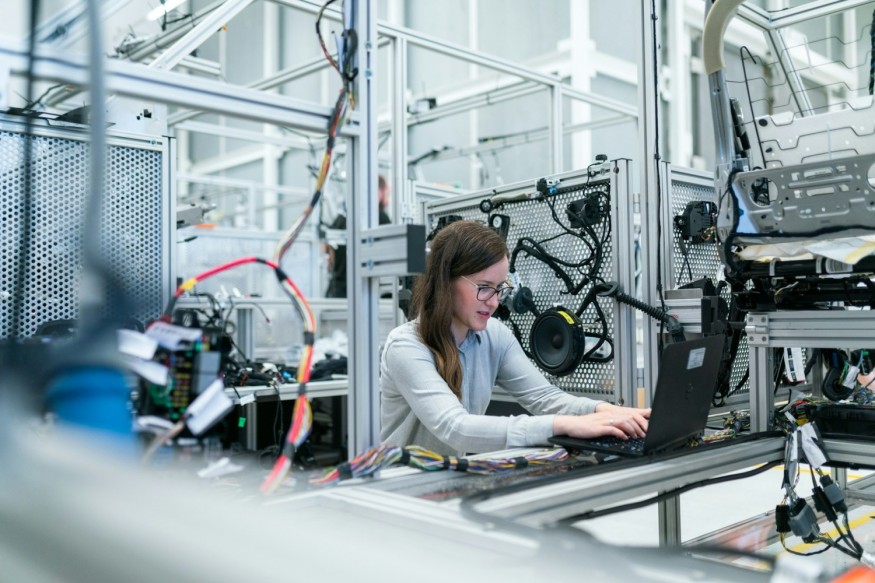
The integration of Artificial Intelligence (AI) into supply chains and e-commerce order fulfillment is not just a trend but a revolutionary shift in how businesses operate and compete.
AI's ability to analyze vast amounts of data, predict trends, and automate processes is transforming these sectors. This article explores the various ways AI is making supply chains more efficient and e-commerce order fulfillment more customer-centric.
The Rise of AI in Supply Chain Management
AI-Driven Predictive Analytics
Overview of Predictive Analytics: Predictive analytics, powered by AI, is a game-changer in supply chain management.
By analyzing historical data, market trends, and consumer behavior, AI algorithms can forecast demand, optimize inventory levels, and guide procurement strategies. This predictive capability enables businesses to be proactive rather than reactive, ensuring they are always a step ahead in managing their supply chains.
Major companies like Amazon and Walmart have leveraged predictive analytics to streamline their supply chains. Amazon's anticipatory shipping model, which uses AI to predict what customers will buy and when has set a new standard in supply chain efficiency.
These tools and technologies have since given rise to innovative concepts such as online order fulfillment, among other things, resulting in an increasingly vibrant global supply chain.
Enhanced Inventory Management
Real-Time Inventory Tracking: AI systems provide real-time insights into inventory levels, reducing the risk of overstocking or stockouts.
Sensors and RFID tags, coupled with AI algorithms, can track inventory across multiple locations, providing a unified view of stock levels.
Automated Reordering Systems: AI's predictive capabilities are not limited to forecasting demand. They also play a crucial role in automating the reordering process.
By predicting when stock levels will deplete, these systems can automatically initiate purchase orders, ensuring continuous availability of products without manual intervention.
Efficient Route Planning & Logistics
AI in Logistics: In logistics, AI optimizes shipping routes and delivery schedules, accounting for variables like traffic conditions, weather, and delivery urgencies. This optimization not only saves time but also reduces operational costs.
AI stands to add substantially more value when working with complexities in supply chains, such as dangerous goods or merchandise that involve plenty of regulatory hurdles.
Reduced Costs & Emission: AI's role in logistics goes beyond efficiency. Optimizing routes and reducing unnecessary travel contributes to lower fuel consumption and reduced carbon emissions, aligning supply chain practices with sustainability goals.

AI Transforming E-Commerce Order Fulfillment
Personalized Customer Experiences
AI & Customer Interactions: In e-commerce, AI excels at personalizing customer experiences. From product recommendations to tailored marketing messages, AI algorithms analyze customer data to provide a more personalized shopping experience.
Impact on Sales & Customer Loyalty: Personalization, powered by AI, has been shown to impact sales and customer loyalty significantly. Customers are more likely to purchase from a site that understands their preferences and provides relevant suggestions.
Streamlining Order Processing
Automation in Order Processing: AI automates various aspects of order processing, from the moment an order is received to its dispatch. This automation includes picking, packing, and sorting, all of which significantly increase efficiency and reduce human error.
Reducing Errors & Improving Efficiency: By automating order processing, AI not only speeds up the fulfillment process but also ensures accuracy. This reduction in errors leads to cost savings and enhances overall customer satisfaction.
Predictive Shipping & Delivery
Preemptive Shipping Models: One of the most forward-thinking applications of AI in e-commerce is predictive shipping. This model involves AI algorithms predicting customer purchases and initiating the shipping process even before the final purchase is made.
This approach significantly reduces delivery times and enhances customer satisfaction. Companies like Amazon are experimenting with this concept, aiming to redefine the standards of customer service in e-commerce.
Enhanced Delivery Experiences: AI not only predicts when and what customers might order but also optimizes the delivery process.
By analyzing traffic patterns, weather conditions, and customer availability, AI ensures that products are delivered at the most convenient time, enhancing the overall customer experience.
The Challenges and Future of AI in Supply Chain and E-Commerce
Navigating the Challenges
Data Privacy & Security: As with any technology reliant on data, AI in supply chains and e-commerce faces challenges regarding data privacy and security.
Ensuring the confidentiality and integrity of customer and business data is paramount. Businesses must adhere to stringent data protection regulations and employ robust cybersecurity measures to safeguard against breaches.
Integration with Existing Systems: Another significant challenge is integrating AI technologies with existing supply chain and e-commerce systems.
Many businesses operate on legacy systems, and transitioning to AI-enabled platforms can be complex and resource-intensive. However, the long-term benefits of such integration often outweigh the initial challenges.

The Road Ahead
Emerging Trends in AI for Supply Chain and E-Commerce: Looking forward, AI is set to become even more sophisticated and integral to supply chains and e-commerce. Trends like AI-powered autonomous vehicles for delivery, drone technology, and advanced robotics in warehouses are already on the horizon.
Furthermore, AI's role in sustainable and ethical supply chain practices is becoming increasingly important as businesses and consumers alike grow more environmentally and socially conscious.
The integration of AI into supply chains and e-commerce is not just a technological upgrade but a fundamental shift in how businesses operate and deliver value to their customers.
As AI continues to evolve, its potential to further revolutionize these sectors is boundless. Embracing AI is no longer an option but a necessity for businesses aiming to stay competitive and meet the evolving demands of the digital age.












